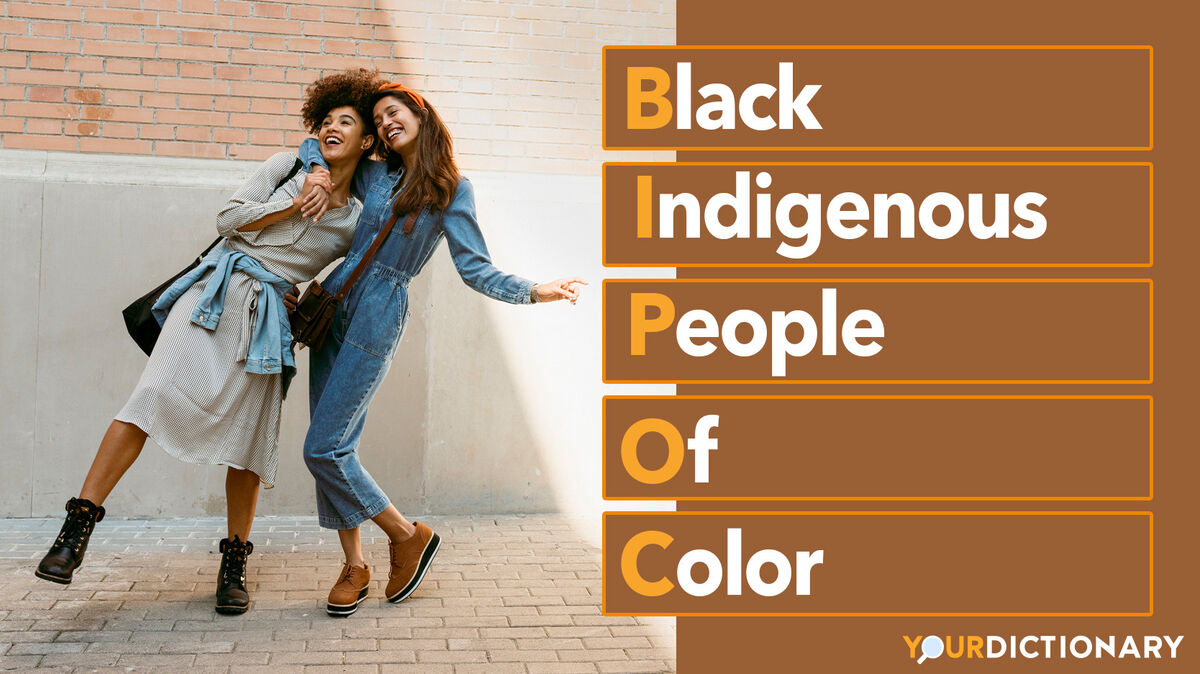
You may have seen the acronym BIPOC in a recent news story or in your social media feed. BIPOC stands for "Black, Indigenous, People of Color" (sometimes "Black, Indigenous, and People of Color"). It describes people of non-white ethnicities who face similar — and unique — forms of racial discrimination in society.
BIPOC as an Abbreviation
The term BIPOC (pronounced BYE-pock) is primarily used online, particularly in social media. It’s a general term that both encompasses the non-white community in the U.S. and separates the Black and Indigenous experiences as unique from other people of color (POC).
The letters in BIPOC represent:
Black
Indigenous
People of Color
Many users believe that the acronym represents "Bisexual People of Color," due to the BI present before POC. However, they are incorrect. When you use the term BIPOC, you are acknowledging the specific racism and discrimination experienced by the Black community and the invisibility and erasure often experienced by Indigenous people.
History of BIPOC
The term BIPOC surged in popularity after George Floyd was killed by police officer Derek Chauvin on May 25, 2020. Protests for racial justice and police reform appeared all over the United States, bringing new attention to the experiences of the Black community in America.
Since the 2020 protests, BIPOC has replaced both POC and “minority” as a way to describe non-white people. However, there has been much debate surrounding BIPOC’s use. Some believe that it’s an inclusive and empowering way to indicate that people of all non-white ethnicities can support each other through adversity. Others contend that BIPOC, like POC before it, is a euphemistic marketing slogan that only adds to the culture of invisibility for the people it represents.
Usage of BIPOC
You’re likely to find BIPOC mentioned in articles about racial protests and social justice. You may also see it in a hashtag (#BIPOC) after a Tweet or social media post supporting non-white community members. Typically, BIPOC is used as an adjective, but you’ll also see it used as a noun.
When using BIPOC in a sentence, the intent should be to cultivate an inclusive environment. Specifying that you encourage BIPOC applicants for a job or writing submission, for example, shows that you seek to represent voices of all backgrounds. Cultivating a list of BIPOC creators can help readers see themselves reflected in art or to see the world through different perspectives. Never use BIPOC to replace naming specific people or experiences as Black or Indigenous. The term should not serve as a blanket term for every person of a non-white ethnicity.
Examples of BIPOC
Examples of the term BIPOC in the media include:
“We seek to intentionally reframe the Black/white binary to cultivate anti-racist analysis, knowledge and practice among a wider group of BIPOC, to call us all into racial justice work.” The BIPOC Project
“The impacts of historic injustice have continually pushed BIPOC communities further from opportunity, creating barriers to their success, safety, and well-being.” - YWCA Seattle
“The continued use of ‘minority or marginalized’ sets up BIPOC communities in terms of their quantity instead of their quality and removes their personhood.” - Mental Health America
Related Abbreviations
BIPOC is only one of several abbreviations that reference racial groups and social movements. Additional abbreviations include:
IBPOC - Indigenous, Black, People of Color (adds focus to the Indigenous people)
BIMPOC - Black, Indigenous, Multiracial, People of Color
QTBIPOC - Queer, Trans, Black, Indigenous People of Color
WOC - Women of Color
BAME - Black, Asian and Minority Ethnic (acronym used in the U.K.)
AAPI - Asian American and Pacific Islander
BLM - Black Lives Matter
ADOS - American Descendents of Slavery